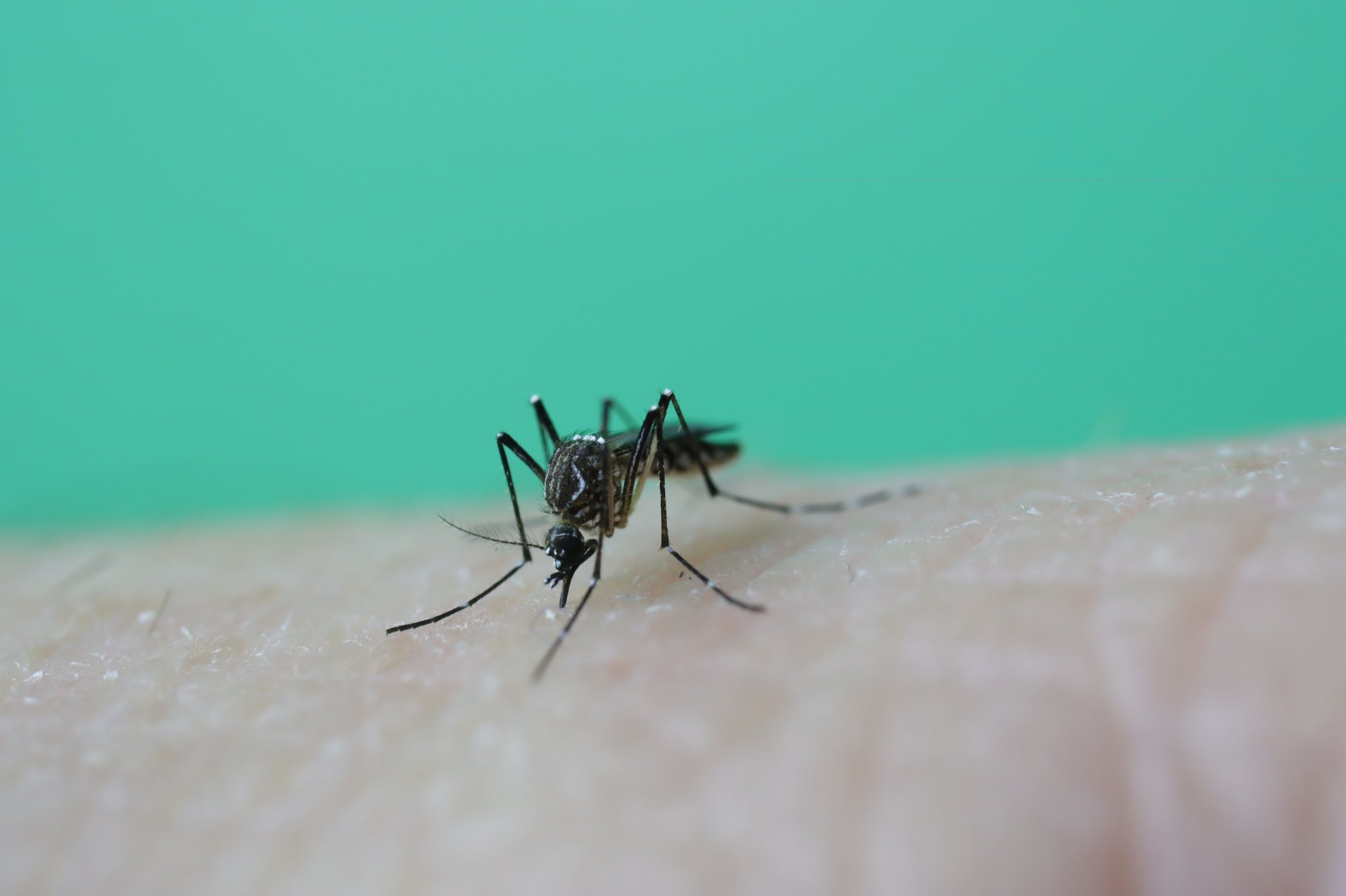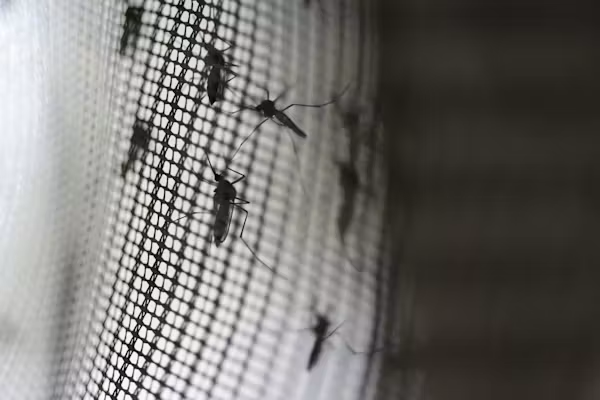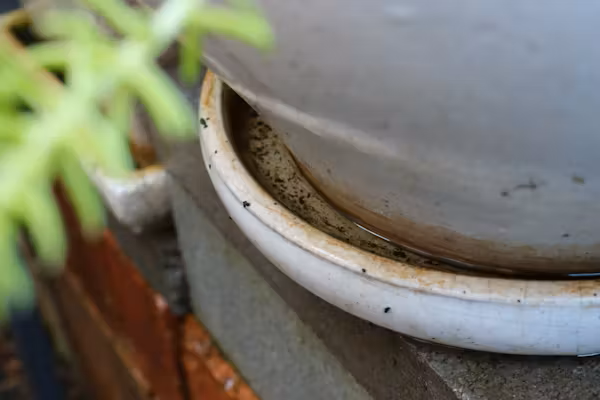In this story
Media Contact

The weather is warming up and that means more time in the backyard. It also means more mosquitoes.
Here are five ways you can mosquito-proof your backyard that don’t rely on spraying insecticides.
1. Get rid of water
Mosquitoes need water to complete their life cycles. They need blood – but water and warmth are just as important.
Getting rid of water around your backyard will go a long way to keeping mosquitoes away. Water trapped in blocked roof gutters, drains and tarpaulin covering boats and trailers can be a great home for mosquitoes.
Mosquitoes can exploit the tiniest of water sources too. It may just be the upturned lid of a discarded plastic drink bottle. If it traps water, mosquitoes will find it and lay eggs in it.
Flush out your bird bath once a week to disrupt the mosquito’s life cycle.
If you have a pond, installing a fountain will discourage mosquitoes. If you can’t keep water clean and circulating, consider filling it with sand and gravel to create an interesting garden bed for succulents or other plants.
Mosquitoes will avoid clean and chlorinated swimming pools but will quickly move into “green pools”. If you’re not using your pool, consider converting it to a “pond” so that fish can help keep mosquito numbers down.
2. Screen up – windows, doors and rainwater tanks
If you can’t get rid of permanent water, at least stop mosquitoes getting to it (or you).
Ensure rainwater and septic tanks have screens to stop mosquitoes entering.
Screen windows and doors to stop mosquitoes entering the home. There are plenty of flexible screening options for windows, doors and balconies.
If you live in a mosquito-prone area, creating a screened outdoor area (such as a pergola, courtyard, or balcony) will give you the opportunity to spend time outdoors without being hassled by mozzies.

3. Choose your garden plants carefully
Some plants contain essential oils and other chemicals that, when extracted and concentrated, provide protection against biting mosquitoes. But there isn’t a lot of evidence that the whole plant will keep mosquitoes away from your garden.
Some types of plants are even marketed as “mozzie blockers” or “mosquito repelling”. But there isn’t any evidence of effectiveness. In fact, some of these plants, such as melaleucas, also happen to be associated with hot spots of mosquito breeding in coastal Australia.
The plants to avoid around the home are those that help mosquitoes breed, such as bromeliads, which trap water.

4. Encourage the animals that eat mosquitoes
Mosquitoes are food for a range of animals including birds, bats, fish, frogs, lizards, insects, spiders and dragonflies. But don’t expect them to eat enough to keep all mosquitoes away.
Bats are often promoted as a good “biological control” options but studies have shown mosquitoes are more likely to be a snack food for small bats, not an irresistible staple of their diet.
For garden ponds, frogs will eat a few adult mosquitoes but tadpoles of Australian frogs generally don’t eat many mosquito “wrigglers”.
Australian native fish will readily eat mosquitoes and may be useful for backyard ponds.
But not all fish are good. While “mosquitofish” (aka “plague minnow”) is distributed overseas to assist in mosquito control, it’s a disaster for local wildlife and, along with other exotic fish species, should not be released into local waterways.
Healthier habitats promote fewer mosquitoes so the best thing you can do is create habitats for the animals that eat mosquitoes.
5. Avoid traps and other gadgets
There are lots of devices purported to catch, kill, or repel mosquitoes from your garden. Some may catch a mosquito or two but they’re not very effective in knocking out big numbers.
“Bug zappers” with bright lights will collect lots of flying insects. It’s just that mosquitoes make up a very small proportion of collections.
Electrocuting devices, again, don’t seem to attract a lot of mosquitoes.
Devices that emit high frequency sounds won’t help either.
The best devices are typically those that are baited with carbon dioxide. These are a mainstay of state and territory mosquito and arbovirus surveillance programs. For a mosquito, the C0₂ tricks them into thinking the trap is a warm-blooded animal. The only problem is these can be expensive to run and don’t seem quite as effective for mosquito control unless used in large numbers.
Yes, you’ll still need repellent
Perhaps the best way to avoid mosquito bites is to pick an insect repellent recommended by health authorities and apply it to ensure all exposed areas of skin are covered. These products and safe, affordable and effective.![]()
Cameron Webb, Clinical Associate Professor and Principal Hospital Scientist, NSW Health Pathology.
This article is republished from The Conversation under a Creative Commons license. Read the original article.














